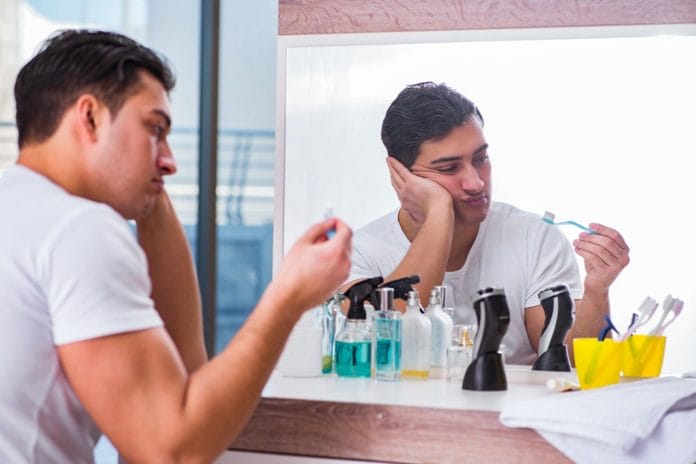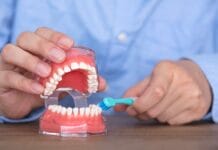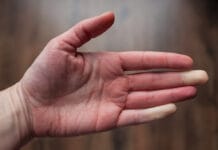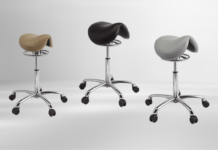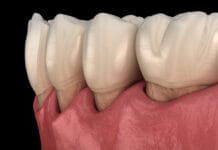It is every dental hygienist’s nightmare: The notion that brushing your teeth isn’t effective or needed. We are the promoters of brushing, the lecturers, the connoisseurs of oral hygiene instruction. We spend our days stressing the importance of brushing twice a day for two minutes. We spend our nights reading about new toothpaste or marveling at the newest sonic toothbrush to hit the market.
If you are a hygienist like me, you believe a toothbrush can save a life. So, imagine my surprise when I came across an article written by Dr. Philippe Hujoel that discussed the ineffectiveness of brushing to prevent dental caries.1
In the article, which was titled, “Historical perspectives on advertising and the meme that personal oral hygiene prevents dental caries,” Hujoel explains that trials have found that “moderate restriction of added sugars can prevent over 70% of the dental cavities, vitamin D prophylaxis and fluoride toothpaste about 50% and 30% of the dental cavities, respectively, and oral hygiene products (without fluoride) 0% of the dental cavities.” While the article does state that these percentages could be debated, the “lack of statistical power in clinical trials” and the “chronic lack of platinum trials on relevant dental health problems,”1 the large variance between percentages these trials produce is still significant.
Of course, personal oral hygiene serves its own purpose. We have all seen patients without daily home care routines sit in our chairs with heavy plaque, calculus, and gingival inflammation. We would never want to steer our patients away from their twice-daily regimens.
However, are we misleading our patients by teaching them that brushing is the key ingredient for caries prevention?
In hygiene school, I was taught to look at a patient’s caries risk by evaluating home care, diet, and overall health. Once I got into the real world, I started to narrow down my oral hygiene instruction list. It isn’t that I did not know about the critical pH of enamel or understand how sugars and acids affect teeth. I just found it difficult to evaluate every patient’s diet, history, and home care in a one-hour appointment.
There have been many times I have thought, “How can I start explaining the diet’s effect on teeth if my patient does not even have an oral hygiene regimen down?” Does my desire to teach modified Bass method and C-shape flossing sometimes overshadow my need to be teaching the effect of diet on teeth and explaining to my patients that dental caries is a multifactorial disease?
How do we as dental professionals ensure that we are teaching dental caries prevention from a whole disease prevention perspective?
Study Patients’ Diets
Integrating conversations about caries prevention into oral hygiene instructions should be something every office is doing. Many offices have moved to implementing a caries risk assessment for every patient. Some choose to ask questions during their appointment time, while others have the patients fill out forms that ask questions pertaining to history, diet, and social life.
Based on the article by Hujoel, diet can have a significant impact on caries prevention.1 Explaining to patients the role diet plays in dental health and allowing them to take control of their risk factors could be the most effective tool in fighting the rampant rate of dental caries in our country.
Support prevention− By 2019, many patients are familiar with caries prevention methods such as water fluoridation, fluoridated oral hygiene products, and dental sealants. Explaining to patients these additional methods of prevention helps to ensure that our patients are receiving correct information about these methods from their trusted dental professional.
Stress oral hygiene− By bringing together diet control and prevention methods, daily oral hygiene regimens still hold much of our focus. A daily routine serves as a reminder to our patients of their responsibility − not just for their own caries control, but for control of their periodontal health. Twice daily regimens include oral hygiene products that work to re-mineralize enamel, combatting the damage done where diet control falls short.2
While the emphasis on daily home care has risen in the public over the last few decades,1 dental caries still remains one of the most common chronic diseases among children today.3 Do our patients and the public understand that dental caries is a multifactorial disease? Working to study our patients’ diets, support prevention, and to stress oral hygiene ensures we are teaching dental caries prevention from a whole disease prevention perspective.
References
- Hujoel, P.P. (2018, October 14). Historical perspectives on advertising and the meme that personal oral hygiene prevents dental caries. Retrieved from https://onlinelibrary.wiley.com/doi/full/10.1111/ger.12374
- Munoz, C.A., Feller, R., Haglund, A., Triol, C.W., Winston, A.E. (1999). Strengthening of tooth enamel by a remineralizing toothpaste after exposure to an acidic soft drink. Retrieved from https://www.ncbi.nlm.nih.gov/pubmed/10686854/
- Hygiene-related diseases: Dental caries. CDC. (n.d.). Retrieved from https://www.cdc.gov/healthywater/hygiene/disease/dental_caries.html

